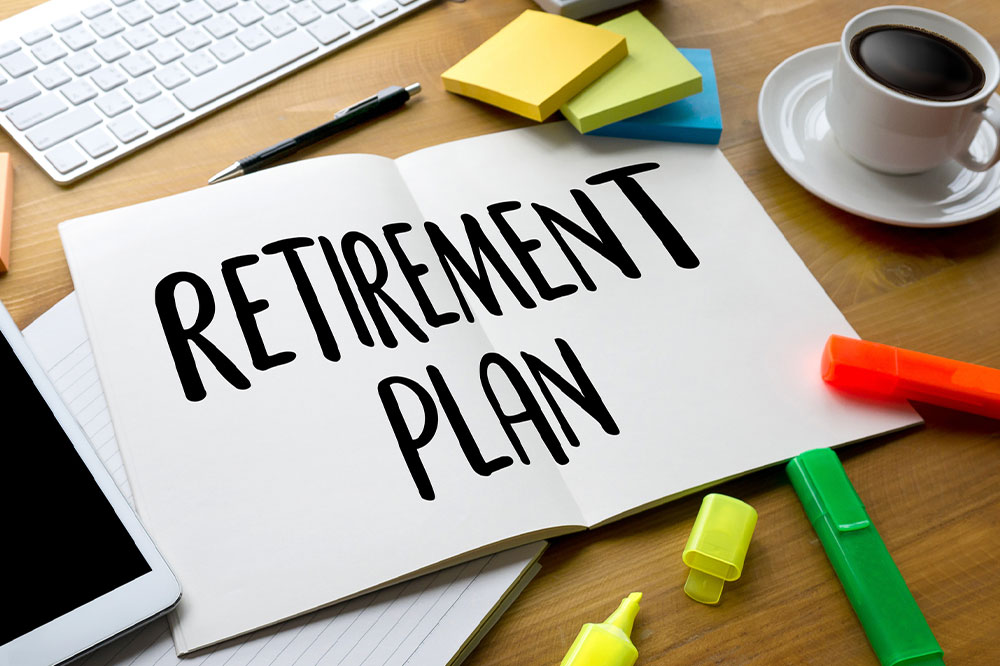Tips to Choose the Best Retirement Plan
We’ve all thought of retirement at some point in our life. It’s a time in our life that we obsessively ponder over and hope to make it a good one. But how much planning can one do? Where does one begin?
Retirement is just as important a time of your life as any and requires you to be prepared. This is especially extra difficult if you have a family. You will find a range of retirement plans to pick from, each one more attractive than the other.

This is because it’s as much a responsibility to yourself as it is to your loved ones. With the rise in life expectancy and living standards, we are all going to live longer and better lives. This means that the standard of our lives post-retirement has just gone up. So if you’re lost on where to start and how to proceed, here’s a simple guide for you.
Here are a few tips to make a good decision.
Start investing early
This is a sound piece of advice. The sooner you start looking through retirement plans, the more time you have to decide upon one that you actually agree with. So how early must one start? Well, a good time to think about post-work life is when you’re well settled and secured in your job. Once you find a job with a stable paycheck and have your savings account up and running, you can start making safe predictions about the future.
Diversify your investments
Yes, savings are good, but so are property investments, fixed deposits, and even equities. Your portfolio must have a range of different investment options. Though some yield more results than others, they all need to exist in a way that allows you more safety nets as you go on with picking a retirement plan.
Pick the right vesting age
Depending on when you wish to retire, the retirement plan must have the right vesting age. For example, if you wish to retire earlier, a pension of vesting age 45 or 50 is a better pick, as opposed to one with a vesting age of 60.
The best kind of retirement plans
To really get the dream retirement plan, you must have multiple income sources in places, which don’t let you down. This means you shouldn’t go for a single asset or product, but multiple of them. Sure, some are statistically better off and less risky than usual, but that doesn’t mean the benefits aren’t worth the risk. Here are a few of the 10 best retirement plans:
The 401K
One cannot go wrong with this classic plan that employers have been rewarding their employees for years with. This is one such employer-sponsored retirement plan. It involves adding up employee contributions to about 4 to 6%, and these contributions are deducted before the income is taxed, reducing the overall tax on the income. Once the employee reaches the retirement age, these savings are run through income tax upon withdrawal.
The Roth IRA
It is another very popular employer-sponsored plan that is usually taken alongside the 401 K. This is because the only difference between these two plans is in the timing of the deduction of the contribution. In the case of Roth IRA, the employee contributions are deducted after withholding the income tax. Another difference is that these funds aren’t taxed upon withdrawal. The benefit here is that the present income tax that the funds are subject to are lower than income tax would be, say, at the time of retirement.
Pensions
These are the plans most of us have heard of and knew so well. They require so little of you, and this is what adds to their popularity and appeal. The employer has a pool of funds in which regular contributions are made. These funds are managed professionally, and the employee has next to nothing to do. What is required of the employee is that they stay on the job for a minimum duration to qualify for the pension. However, these grow rarer every day, and you might not find it as readily available in private companies.
Real estate
A plan we’re all too familiar with, yet none the wiser about. Real estate shouldn’t be overlooked as a serious retirement plan. In fact, it makes for a good last minute plan, if you’re in your mid-50s and aren’t satisfied with your current retirement plan. Look at a decent property and buy it with a lump sum so that you aren’t stuck with debt and have some money aside for paying off any repairs and taxes. Yes, managing a property on such short notice might demand a bit of work, but it’ll give you something to do during retirement. Moreover, the benefits outweigh the risks.